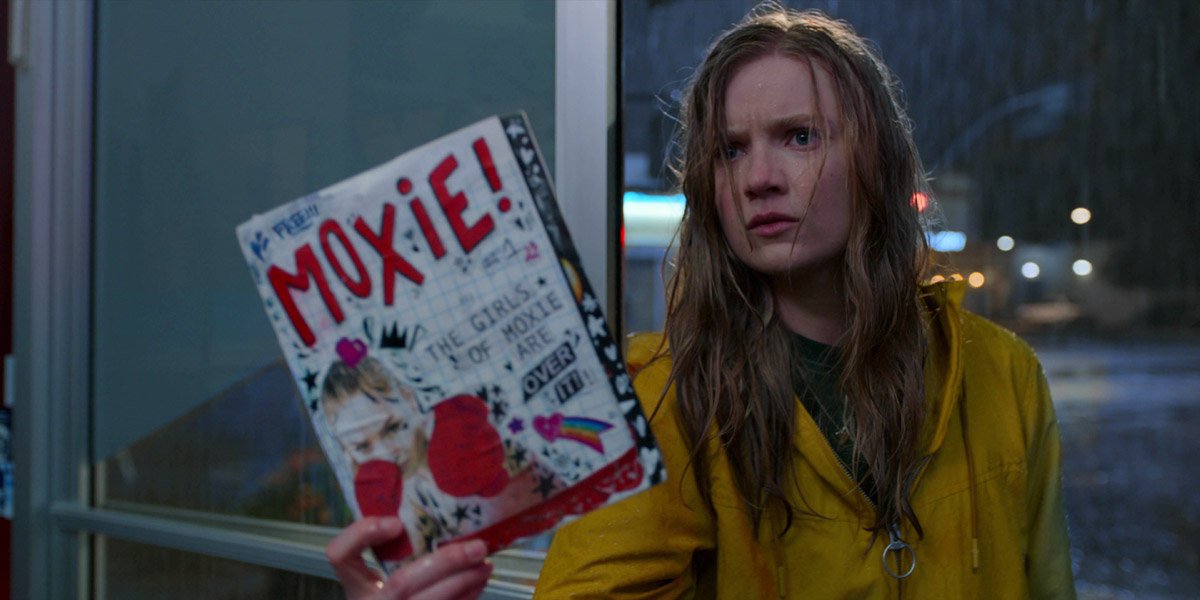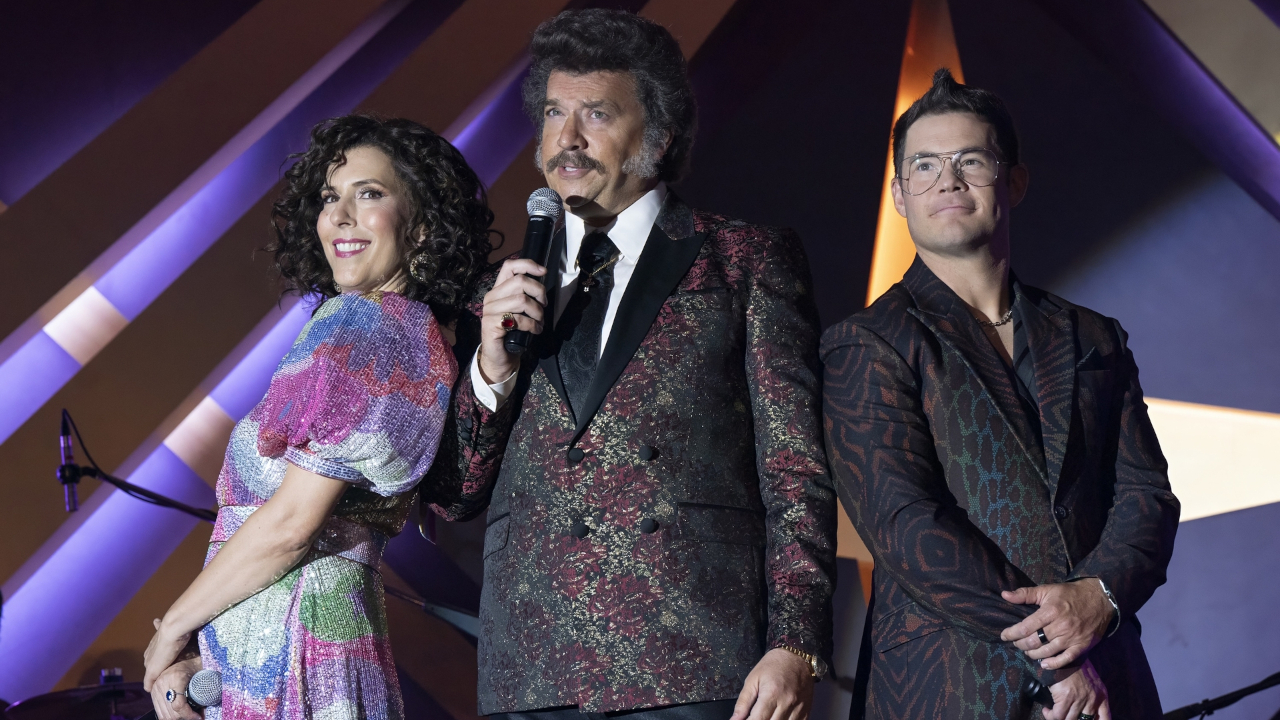Amy Poehler’s Moxie is a film with conviction. It aims to shine a bright light on toxic aspects of our society, specifically in regards to young people, and encourages pushing back against them with passion and loud voices. It properly recognizes the issues it addresses as complex and fraught, but advocates that the only way things will change is if people fight for what they believe in.
It’s a movie with a proper head on its shoulders, and it’s art in promotion of good. Unfortunately it also happens to be built on a foundation that is a basic and overly familiar coming-of-age story that ultimately renders the cinematic experience mostly immemorable.
The new Netflix movie is based on the novel of the same name by author Jennifer Mathieu, and follows Vivian (Hadley Robinson) – a teenage girl who finds herself frozen by a college essay question about a cause that she feels passionate about. The vexation comes from always keeping her head down and steering away from conflict, but then she finds a double dose of inspiration. After meeting a new classmate named Lucy (Alycia Pascual-Peña) who isn’t willing to tolerate any of the sexist garbage constantly spewed by the school’s star athlete (Patrick Schwarzenegger), she does a bit of investigating into the past of her mother (Amy Poehler) and discovers that she was a riot grrrl growing up who fiercely advocated for women’s rights while blasting Bikini Kill.
Feeling exceptionally motivated, the teenage lead anonymously writes a feminism-inspired zine called Moxie, and one morning goes into the girl’s bathroom to leave a stack of copies on the hand dryer. It quickly becomes the talk of the school, with students not only debating the issues that are raised, but also the identity of the mystery publisher. Without ever revealing her secret identity, Vivan becomes a part of an unofficial club pushing for the end of misogynistic policies and biases – though the work is not without struggle, as she earns ire from male classmates, sees no support from the principal (Marcia Gay Harden), and begins to see fractures form in her relationship with her best friend, Claudia (Lauren Tsai).
Hadley Robinson makes a strong debut as a lead in Moxie.
With the story contained to the events at the high school, Moxie’s stakes are entirely dependent on audience investment in the characters, and that ends up being a mixed bag due to the simplicity around the edges in the ensemble. As a protagonist, Vivian is interesting to watch both in her ambition and in her demonstrated flaws – such as her moment of panic after first “releasing” the zine, and her immense frustration with the complications inherent in the issues she is trying to fix. Likewise, Lucy is compelling for her strident attitude and unwillingness to accept the status quo; and Claudia’s perspective winds up adding new levels to the issues (plus her relationship with Vivian is the most significant in the film).
By extension, Moxie makes for a great platform for some talented young actors. In her first lead role, Hadley Robinson demonstrates wonderful range playing Vivian, and the evolution of the character through the story feels authentic because of how she plays it. Alycia Pascual-Pena has terrific stage presence, making her an excellent fit for the role of the protagonist’s contemporary catalyst to action over in-action.
Moxie trips up with a large supporting cast with a number of thin characters.
That depth isn’t universally present in the supporting cast, however, and that extends to both the primary antagonistic forces, and Vivian’s newfound friends in revolution. Both Marcia Gay Harden’s turn-a-blind-eye principal and Patrick Schwarzenegger’s cocky jock wind up being overly familiar tropes, and aren’t given enough substance to add any extra nuance to the movie’s core conflict. The same can be said of members of the Moxie club, as characters seem only present to represent a single problem, such as issues with the dress code, and resource allocation in boys and girls sports programs. And while you want more from the woke romantic interest (Nico Hiraga), Vivian's single mother (Amy Poehler), or even the caught-in-the-middle teacher (Ike Barinholtz), there's a lot that winds up resting on cliches and renders the movie to be a touch too typical.
The best thing about the coming-of-age genre is that it gives young people an opportunity to recognize that they are not alone facing the crazy issues that come with life as a teenager – and it would be wonderful if people watch Moxie and feel inspired by the actions of its protagonists. It harbors that potential, but more likely it will become a film that you reflect on with a shrug and a, “That was okay” as the poster scrolls by when you cycle around Netflix. Its aims are positive, but the results are mediocre.

Eric Eisenberg is the Assistant Managing Editor at CinemaBlend. After graduating Boston University and earning a bachelor’s degree in journalism, he took a part-time job as a staff writer for CinemaBlend, and after six months was offered the opportunity to move to Los Angeles and take on a newly created West Coast Editor position. Over a decade later, he's continuing to advance his interests and expertise. In addition to conducting filmmaker interviews and contributing to the news and feature content of the site, Eric also oversees the Movie Reviews section, writes the the weekend box office report (published Sundays), and is the site's resident Stephen King expert. He has two King-related columns.











